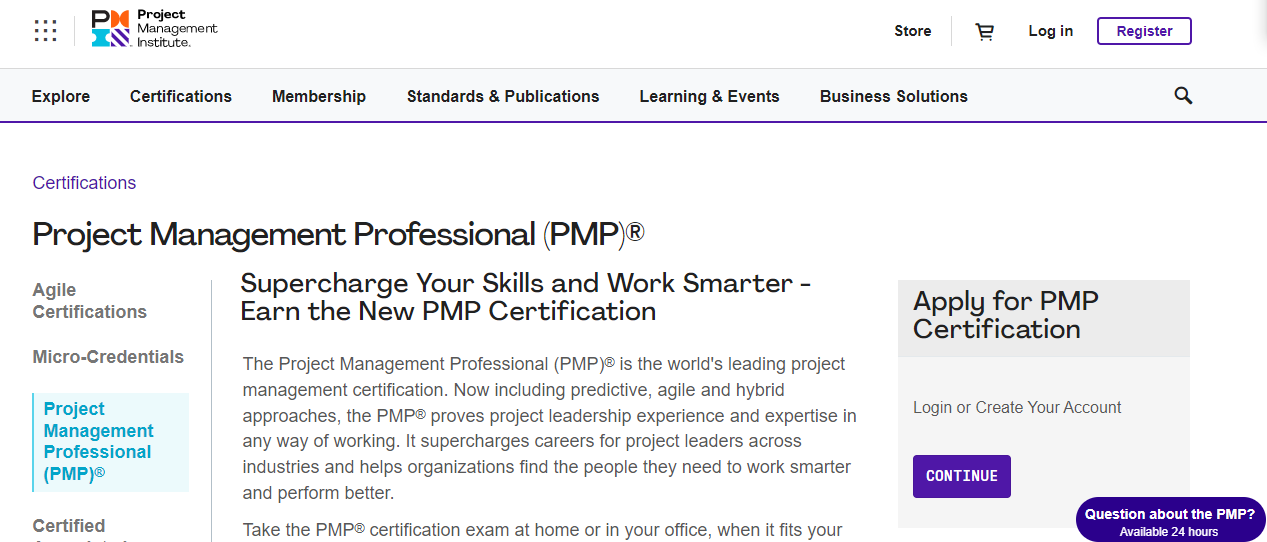Last Updated on December 4, 2023 by Ewen Finser
Project management is one of the most sought-after skills in the market today. According to a study by the Project Management Institute (PMI), there is a growing demand for project management professionals in the US, with 214,000 new job openings every year.
If you are looking to pursue a career in project management, two of the most common paths are those of a project coordinator and project manager. While both positions may seem synonymous, they are different in their roles and responsibilities, required skills, and earning potential.
This post will take an in-depth look at these two careers to help you decide the best fit for you and your professional goals.
Project Coordinator vs Project Manager – Bottomline Upfront
The responsibilities of a project manager are broader than those of a project coordinator. A project manager is accountable for an entire project and its successful completion, whereas a project coordinator is responsible for certain aspects. The education and experience required to become a project coordinator are much less than that of a project manager. To transition from a project coordinator to a project manager, you need to develop your soft skills, earn relevant certifications, gain work experience, and apply for project management jobs.
Project Coordinator vs Project Manager – Main Differences
The main differences between a Project Coordinator vs Project Manager are:
- A project manager is a senior ranking staff member and is responsible for the project’s goals, deadlines, and budgets, whereas a project coordinator oversees the day-to-day operations needed to keep the project on track.
- Project managers typically have a bachelor’s or master’s degree in management, business, or a similar field and two to four years of experience, whereas project coordinators usually have a high school diploma, or a bachelor’s degree, and one to four years of experience.
- A project manager may be responsible for many projects and programs at once, whereas a project coordinator is responsible for one extensive program or project.
- A project coordinator helps manage a project but does not have the authority to make decisions on their own, whereas a project manager has the power to make decisions.
- A project manager earns more with an average of $77,420 per year, whereas a project coordinator earns an average of $65,214 per year.
Who is a Project Coordinator? Understanding Project Coordination
A project coordinator handles practical tasks associated with planning, managing, and completing a project. They are responsible for the smooth running of a project and keeping everyone involved on track.
They have to liaise with all parties involved to make sure that the project progresses within the required time and budget. Besides, they work closely with clients and ensure that everyone is on the same page regarding requirements and expected outcomes.
What Does a Project Coordinator Do?
The main duties of a project coordinator are;
- Overseeing the project schedule and planning milestones
- Managing all resources required to complete the project, including people, materials, and vendors
- Identifying potential risks and addressing them before they become problems
- Keeping team members on schedule with their deliverables while updating stakeholders on the progress
- Coordinating communications among team members, including scheduling regular status meetings and sending out emails to keep everyone engaged
- Managing any administrative aspects of the project, including budgeting, procurement, and logistical arrangements
- Maintaining a central database of all project documents and materials, such as meeting summaries, status reports, action items, and deadlines
- Taking on the project management role in the absence of the project manager
What are the Skills of a Project Coordinator?
- Problem-solving skills: Project coordinators have to solve problems by communicating to employees directly or by conferring with management promptly.
- Leadership skills: They should excel at providing leadership to keep teams working together and focused on their goals.
- Commercial awareness: They have to be aware of current market trends to provide clients with a suitable product or service. To do this, they must be up-to-date with new developments and changing market conditions.
- Communication skills: A project coordinator should liaise with team members and other staff members to keep everyone engaged. Consequently, they need excellent communication skills and the ability to listen and respond appropriately or negotiate with others effectively.
- Computer literacy: They should have an excellent working knowledge of the software used within that industry and navigate websites and online services. This will enable them to access information quickly and efficiently when needed.
- Organization skills: Since they manage multiple aspects of the project, this role requires excellent organizational skills. They will be often responsible for scheduling meetings, conference calls, and other events related to the project. Additionally, they may be responsible for creating presentations for different occasions.
- Budgeting: Project coordinators, must know how to efficiently allocate resources to meet the set goals on time.
How Much Does a Project Coordinator Earn?
The average salary of a project coordinator is $53,561 in the United States.
Who is a Project Manager?
A project manager is responsible for the successful completion of a project. They make sure teams adhere to the project scope, timelines, and budget throughout the entire project period. They are also in charge of coordination, determining schedules, communicating with all team members, and tracking progress to make sure goals are achieved.
What Does a Project Manager Do?
Some of the key roles and responsibilities of a project manager include:
- Set and manage project goals and objectives
- Plan, schedule, manage and track progress, including how the budget is being used
- Ensure team members have the resources needed to meet their objectives
- Oversee all aspects of the project, including quality control, risk management, and stakeholder engagement
- Provide regular progress reports to senior management on all activities
What Skills Should a Project Manager Have?
- Planning and organization: Project managers should be able to plan for long-term and short-term projects. Planning entails budgeting, scheduling, and giving high-level directions on what needs to be done.
- Excellent communication skills: Good communication helps them share information and solve problems. It also enables their team members to be more productive and improves teamwork, fostering positive relationships between employees and other stakeholders.
- Leadership: To be effective, they need the right leadership skills to set the right tone for team members. Leadership is about inspiring, guiding, and encouraging others to achieve something they might not achieve on their own.
- Analytical and logical skills: Project managers are expected to analyze data and provide rational explanations and estimates. After all, it’s their work to find the best approach for any project. Good analytical skills will help one deliver better performance for the company and yourself.
- Computer literacy: Most projects nowadays involve a significant amount of computer work. Thus, they need to be computer literate to write reports that will be consumed by the project’s stakeholders.
- Interpersonal skills: Project managers are constantly in touch with different stakeholders, including end-users, clients, and other business units. Good interpersonal skills will help you relate well with the project team, senior management, and other stakeholders.
- Multi-tasking: Project managers who are working on multiple projects simultaneously need multi-tasking skills. With these skills, they should comfortably resolve issues and monitor tasks without getting distracted.
- Resource management: They should have the expertise to manage resources and ensure there’s no shortage of materials for the project.
- Customer service: Customer service skills are essential for project managers. They have to work together with end-users, so it is crucial to understand what they want.
How Much Does a Project Manager Earn?
The average salary of a project manager in the U.S. is $88,907.
How to Move From a Project Coordinator to a Project Manager
If you want to transition from being a project coordinator to a project manager, here are some tips;
Improve Your Leadership Skills
Project managers need a higher level of leadership, problem-solving, and communication skills than project coordinators. You should know how to deal with conflicts, adapt to changes, and take part in major decisions. You should also be confident, creative, and take risks when necessary.
Get Certified in Project Management
You may want to improve your skills by getting a project management certification. Here are some certificates issued by the Project Management Institute that can help elevate your status.
Certified Associate in Project Management Certification: The CAPM is for entry-level project managers. To enroll for the certification, you need a high school diploma or an associate degree (or a global equivalent) and complete at least 23 hours of project management training before you sit for the exam.
To maintain this certification, you will need to earn 15 PDUs every three years.
Project Management Professional Certification: This certification validates your competency in managing people, processes, and the business environment. Before you apply for the PMP certification, make sure you should have a four-year degree, have been in charge of projects for at least three years, and must have undertaken 35 hours of project management education or the Certified Associate in Project Management (CAPM) certification.
Alternatively, you can qualify with a high school diploma or an associate’s degree (or a global equivalent), 60 months of leading projects, and 35 hours of project management training or CAPM Certification. To keep your certification active, you need to earn 60 Professional Development Units (PDUs) over a three-year cycle.
Program Management Professional Certification (PgMP): To earn this certification, you need a high school diploma or associate degree or a global equivalent, at least 48 months of experience working in project management or PMP, and project management experience for at least 84 months within the last 15 years
To maintain this certification, you must earn 60 PDUs every three years.
Gain Relevant Experience
It is crucial to demonstrate your ability to take on project management responsibilities with relevant experience. For example, you could ask to supervise more people or offer to conduct pieces of training that a project manager does. These additional responsibilities show your ability to learn and handle the responsibilities of a project manager.
Apply for Project Management Positions
You will find many project management positions through networking rather than formal job postings. Usually, hiring managers look for qualified people in project management circles and forums before outsourcing. Always keep an eye out for these opportunities. Eventually, you might land one that will help you demonstrate your skills and become an acclaimed project manager.
FAQs
Question: What professional qualifications do I need to become a project coordinator?
Answer: To be a project coordinator, you need a high school diploma. In some cases, recruiters expect you to have a bachelor’s degree or a technical certification. Understanding risk management and quality assurance control can give you an edge over other candidates.
Question: Which is the best degree for a project manager?
Answer: If you want to be a project manager, consider getting a degree in business management or a related field. A bachelor’s degree will suffice for most project management jobs, although some universities offer specialized programs for project managers.
Question: How do I become a project coordinator with no experience?
Answer: If you are interested in a career as a project coordinator but lack the relevant experience, consider these steps:
• Sign up with someone working in the same position or higher to mentor you
• Showcase your crucial skills such as communication, organization, and leadership
• Get professional certifications such as the (Project Management Professional) PMP
• Look for training opportunities, conferences, and bootcamps
• Earn your bachelor’s degree
• Apply for project coordinator positions
Question: Is project management a good job?
Answer: Yes. Project management is both a rewarding and demanding career. It offers a variety of challenges and a good salary, but it is also a tough job that can be stressful at times. The best part is that it is always available as most companies launch projects to help boost revenue, save money, and make their business more efficient.
Conclusion
Project coordinators and project managers are both managerial jobs involved in the whole project life cycle. They both oversee important aspects of any project despite the difference in their scopes of work.
Given the importance of project management to organizations, project coordinators and project managers are in constant demand across all industries and sectors. The steady job growth and numerous job opportunities make these careers a safe option. The job market will grow in most areas over the next decade, making either position a promising career option for any interested person.
Choosing between the two is tricky since they both operate at different levels. A project coordinator is relatively junior and usually, reports to the project manager. The better option is obviously the project manager since they are senior and earn more than a project coordinator.








